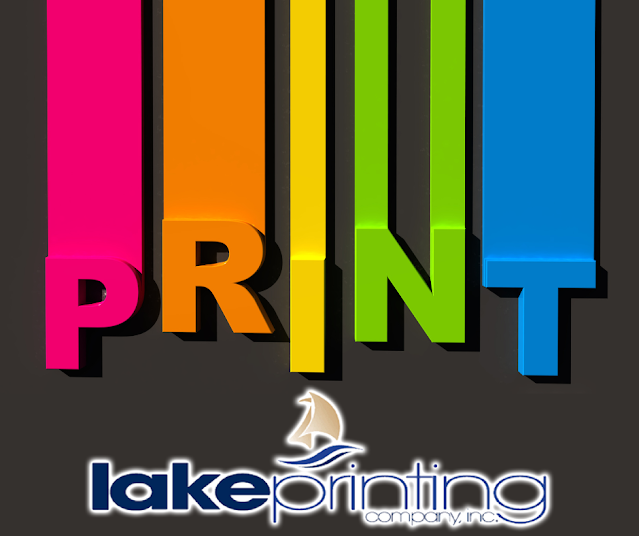Tips For Surviving Punctuation Day
In our business, punctuation is not just a bonus, but a requirement. As the best printing company at the Lake of the Ozarks, we see hundreds of print proofs a week with words that have been scripted by businesses. With so many projects being worked on at once, proofing every print piece for spelling and grammar is not something we can fit into our schedule. September 24th is Punctuation Day, so we're going to take some time and explain some necessary facts about punctuation, as well as some of the most common spelling and grammatical errors people make!
I have spent most of the day putting in a comma and the rest of the day taking it out. ~Oscar Wilde
Ten of the Most Misspelled Words
1. Lose vs. Loose
Lose is the opposite of win, while loose means something is not tight.
2. Weird not Wierd
3. Their, They're, There
Their - this is possessive, meaning it owns something.
They're - this is a contraction for "they are."
There - this refers to a place or idea.
4. Your vs. You're
Your is possessive. It would be used if you own something. You're is a contraction of "you are."
5. It's vs. Its
It's is a contraction for it is or it has. Its is indicating possession, like when one thing owns another.
7. Effect vs. Affect
In most cases, effect is a noun and affect is a verb. If you are still uncertain, try substituting a different verb and see if it works.
8. Weather vs. Whether
Weather would describe snow, rain, sunshine, hurricanes, tornados, etc. While whether is used to introduce the first of two or more alternatives. Whether you decide to use this correctly or not, thankfully, does not affect the weather.
9. Alot
Just like you don't write alittle, abunch, or acantaloupe, you don't write alot - you write a lot.
10. Then vs. Than
Then is used to describe time while than is used for comparison.
Weather you think you make alot of grammar mistakes, or not, we hope that you're company can utilize this information to keep from looking too wierd when you write up the text for you're next print piece.
Do You REALLY Know Your Punctuation?
Punctuation is an important part of communication, because, as we all know, there is a big difference between "Let's eat, Grandma," and "Let's eat Grandma." Here are a few of the common punctuation marks, what they're called, and where you would use them in your sentences.
This is used to indicate the omission of one or more letters in a word, or to indicate plurals of abbreviations and symbols.
These can be used to include explanatory words or phrases within quoted language.
This sign marks a major division in a sentence to indicate that what follows is an elaboration, summation, interpretation, etc. You will also capitalize the first word after a colon only if it is a proper noun or the start of a complete sentence.
This mark shows that there is a division in a sentence, as in setting off a word, phrase, or clause, to separate items in a list, to mark off thousands in numerals, or separate types or levels o information in other data.
You use this mark to note an abrupt change in thought in your sentence or an emphatic pause.
Did you know that the ellipsis consists of three evenly spaced dots (periods) with spaces between the ellipsis and the surrounding letters? It's time to start using this piece of punctuation correctly ... even if you haven't in the past.
This is used to express strong emotion. This mark is also commonly overused in our language. When writing, take a look at your final piece, and if you find too many exclamation points (especially if you have ended the last four sentences with one) it's time to re-evaluate and remove a few.
The hyphen is a joiner. Use it to avoid doubtfulness or uncertainty or to form a single idea from two or more words. If you want to be a better-qualified employee or a know-it-all, you can learn how to use this mark correctly.
Use parentheses to include material that you want to de-emphasize or that wouldn't normally fit into the flow of your text, but that you want to include anyway.
This mark is used when a full pause is made at the end of a complete sentence.
This is pretty self-explanatory, it indicates that a question has been asked.
This mark is used to indicate the beginning and end of a quote.
While this is probably used more in wink emoticons it is actually supposed to be used to indicate a major division in a sentence where a more distinct separation is felt. You could use it between two clauses of a compound sentence.
Lake of the Ozarks Printing Company
If you're ready to start working on your next print project, you now have the tools to make sure that it is grammatically correct! You can also download plenty of programs, as well as enable the spell check on your writing program to make sure that you are always putting your best work forward to be printed. Visit our website to learn more about the products we provide, and also submit information to get a quote on your next print piece!



















Comments
Post a Comment